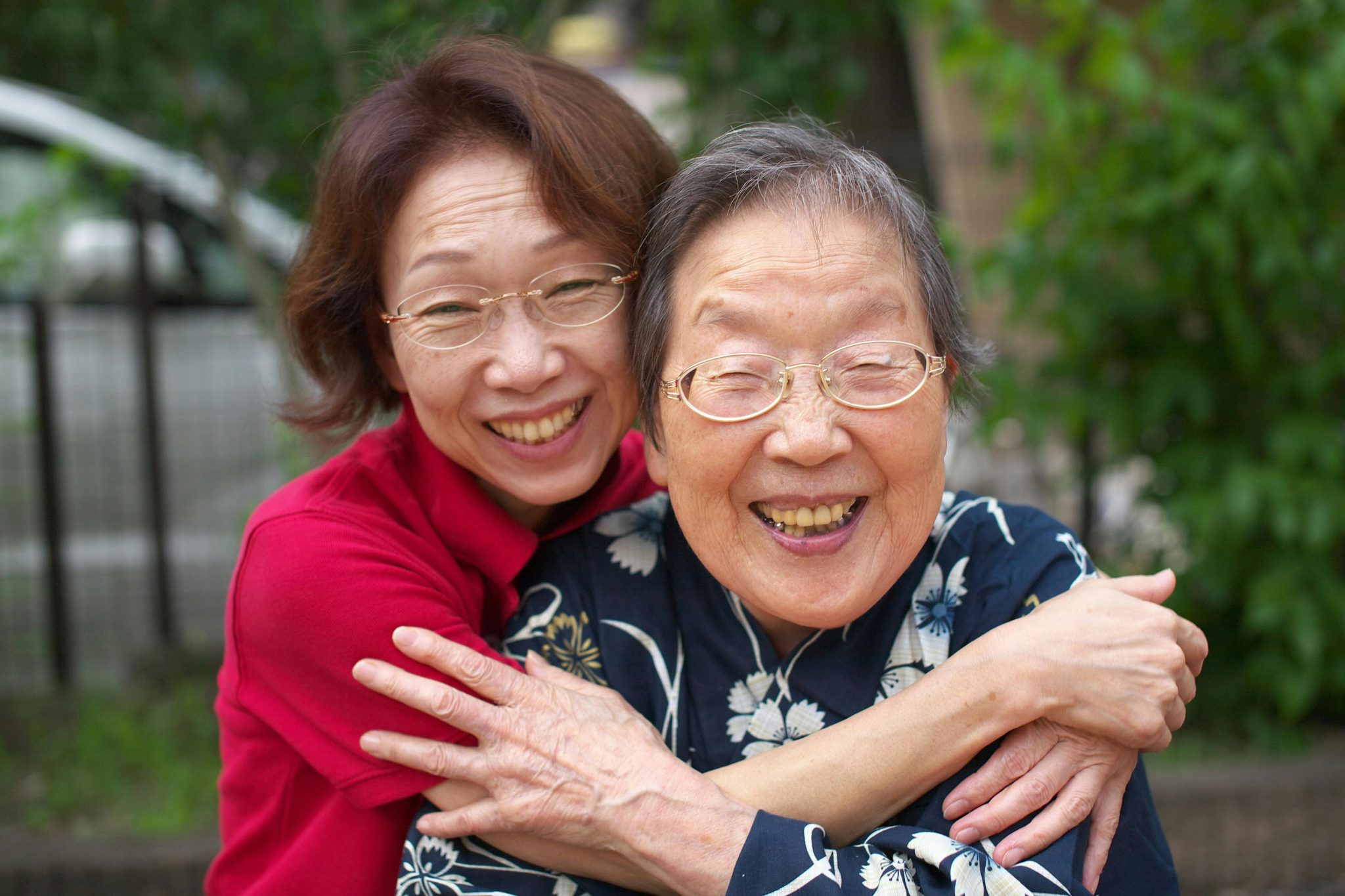It’s normal for seniors to require some extra help as they age. This might be due to decreased mobility, a chronic illness, or simply because certain tasks are a little bit more difficult than they used to be. While some seniors are aware of their limitations and prepare for them or respond to them in the moment, there are others who are not as quick to reach out for help. This could be because of embarrassment, shame, denial, or, in the case of a cognitive condition, not even realizing there’s an issue that needs attention in the first place.
That’s why it’s important as an adult child of aging parents to know some of the signs to look out for when the time comes for your mom or dad to think about getting some support or moving into an assisted living facility. Today, let’s go over seven of the most common indications that your mom or dad might need a little bit of help.
Spending More Time Alone
Was your parent previously a social butterfly, and now more often or not they turn down an invitation to go out? This could be a sign that their health is failing and they need some support. While everyone needs some time to recharge now and then, too much time alone can lead to feelings of isolation and loneliness, which, as the National Institute on Aging points out, can lead to serious health issues such as depression, heart disease and cognitive decline.
There are many reasons for why your mom or dad might suddenly be going out less. This might be due to mobility issues, if they are dealing with an injury, or because of a condition like arthritis that can make certain movements painful. They could also be struggling with the loss of their spouse or a dear friend. Grief can be completely destabilizing and make it difficult to go about one’s daily routine.
Lack of interest in going out might also signal that your mom or dad is already struggling with depression or another mental health issue that makes them uncomfortable or unenthusiastic about the idea of going out. Socializing might cause undue stress, so they feel like it will simply be easier to stay home. They might also be noticing signs of cognitive decline and be too embarrassed to admit it, so they avoid seeing other people so that they don’t need to address any awkward questions.
Now don’t jump to conclusions if your mom or dad declines one or two invitations. It’s healthy to spend time on your own, and as we age we might naturally prioritize more meaningful relationships and spend less time with larger groups in favor of smaller gatherings. But if you notice that your parent is frequently on their own, and seems to be avoiding time with you and other loved ones, then it might be a good idea to have a conversation with them to find out what’s going on.
Things Are Getting Messy
Everyone leaves a dirty dish in the sink from time to time, but have you noticed that things have seemed unusually messy at your parent’s house? This might present as crumbs all over the floor, stains on their clothing, or a lot of buildup in their shower and toilet. You also might notice that their bedroom is in disarray with a lot of clothes that haven’t been laundered, and several tasks around the house and property left undone, like an overflowing garbage or a lawn that is in desperate need of mowing.
This is often the sign of a senior who is no longer capable of keeping up with their daily household tasks, perhaps due to mental or physical limitations. It might hurt their back or knees to bend down, or, perhaps they are too tired or depressed to do the chores needed to keep their house looking clean and comfortable.
Noticing a change in your parent’s cleanliness is often not just about their house, as well. Sadly, many seniors who are having a hard time with their mental or physical health also struggle with maintaining their personal hygiene. This might look like not showering, trouble with wiping after using the toilet, forgetting or being unable to clip their nails, and letting their hair tangle until it might be completely unbrushable on their own.
Again, many of these issues might be due to physical struggles that cause certain activities to be simply too painful, and your parent might be so embarrassed by this that they choose to let the matter get out of hand rather than reach out for help. It could also be the result of mental health struggles, and, in some cases, might be a sign of failing eyesight, and your mom or dad might not even notice how messy their house has gotten.
Once again, it’s always good to sit down and talk with your mom or dad before assuming the worst. They might have been busy with something and simply fallen behind on housekeeping, or this might be a great opportunity to find out how you can help. Although sometimes this issue might indicate that they need extensive support, such as through a care home, oftentimes they might just benefit by having a few tasks taken off their plate. This might look like hiring a gardener or a housekeeper to come in once a week so they don’t need to worry about doing tasks that are too painful and difficult for them.
What was that? Oh yes, I remember…
Has your parent seemed forgetful lately? This sign can be a little bit tricky to navigate, because, as much as you probably don’t want to hear it, it’s perfectly normal for our memories to weaken with age. Memory loss and brain fog can also be attributed to many medical conditions, as well as menopause, where a staggering 50% of women mentioned memory loss as being one of the worst symptoms.
However, while forgetfulness from certain conditions passes, at other times it could signal the start of serious cognitive conditions such as dementia and Alzheimer’s disease. These diseases, while not curable, are important to catch as early as possible, as this can help with treatment of unpleasant symptoms, and help to make the patient experiencing it as comfortable as possible as they navigate these difficult diagnoses.
So, if you notice your parent forgets the name of the remote control or who your elementary best friend was once in a blue moon, it’s probably nothing to worry about. But, if they are constantly searching for words, forgetting important events like birthdays or graduations and missing appointments then it’s important that you suggest they visit a doctor for testing. Even if it’s not something serious, it’s always worthwhile getting memory issues looked at as soon as possible.
Mood Swings
Another common sign of a senior who is struggling with something is that you might notice them display some unusual behavior or emotions. This might look like them becoming very quiet or withdrawn when historically they’ve been friendly and outgoing. It might look like them getting angry for seemingly no reason and being mean and even offensive to others. While everyone has their moments, if your mom or dad is having a lot of emotional outbursts and are acting in a way that is unusual for them, it’s probably something you want to get looked at.
Sometimes mood swings and sudden emotional changes are issues that can be addressed by a mental health therapist, or even a little bit of support from a loved one. This may be happening because your parent is struggling with all the changes happening in their life, and they aren’t quite ready to accept their changing body and mind. They might be angry at their physical and mental limitations and instead of doing the work to adjust to their new circumstances, they take it out on the people around them.
Another possible reason for emotional outbursts is due to confusion brought on by a cognitive disease like Alzheimer’s, so it’s always good to pay attention to any emotional changes in your parents.
Inconsistency
Inconsistency might look like your parent missing doses of their important medication, or frequently missing appointments. While this might connect with memory issues, it might also be connected to poor mental health, as it’s common for people struggling with depression, anxiety or addiction issues to have trouble staying on track with a schedule.
All of these signs are just little hints that your parent might need a hand. Quite often all they need is a bit of support or more frequent visits. But you don’t want to let something important slip by, so always be sure to bring up a concern when you notice something is different.
Unexplained Bruise and Injuries
Everyone gets an unexplained bruise from time to time. You might have a vague memory of walking into the corner of a counter or stubbing your toe, but you got distracted and forgot about it. That’s totally normal and an occasional small bruise or scratch with no explanation is not generally cause for concern. However, if you notice that you parent consistently seems to have bruises, cuts or other injuries with no good explanation for how they happened, then you should sit up and pay attention.
Unexplained bruises could mean several different things, but one of the most common reasons is that they happened due to falls. Each year, 1 out of 4 seniors in the United States experiences a fall, but, according to the CDC, less than half of those falls are reported to doctors.
Falls cause thousands of hospitalizations, traumatic brain injuries, and even deaths. It’s a serious injury for seniors, who often struggle with their mobility along with a loss of bone density. Seniors often struggle to recover as quickly as a younger person, which often results in further restriction to their movement. If falls are the culprit behind the bruises then it may be that your parent feels to ashamed to admit that they have been falling, but continuing to keep it a secret could lead to serious consequences.
Another reason for bruises could be an undiagnosed medical condition, such as a blood clotting disorder. Of course, as with any medical condition, it’s always good to attend to it as soon as possible.
While there’s definitely often explanations for bruises or injuries, there’s one final explanation that you should be concerned about. Elder abuse is unfortunately much more common that you would probably like to admit. In fact, a study by the World Health Organization in 28 countries found that 1 in 6 seniors experienced some form of abuse in a community setting each year. This might come from a spouse, a friend, a nurse, or even a fellow care worker. While it’s never nice to think about, it’s important to immediately take action if you believe the senior you care for is experiencing any kind of abuse, either physical or emotional. Even some of the other signs on this list, such as mood swings, could be attributed to abuse, so be sure to keep an eye out if you have any suspicions.
Sudden Change in Diet
If you notice an abrupt change in your parent’s appetite or weight, then it could be a sign they need some help. People dealing with anxiety or depression might completely lose their appetite, or suddenly find themselves stuffing themselves with food out of comfort. And sudden, unexplained weight loss or gain could be the result of an undiagnosed medical condition that needs immediate attention.
Addressing someone’s diet or weight is often a sensitive subject, so make sure to be thoughtful when addressing the issue. Make it clear that you’re not coming from a place of judgement, but concern. And, remember, it’s normal for everyone’s weight to fluctuate by a few pounds here and there. But, if you notice a dramatic change from their usual appearance or appetite, then it’s worth having a quick, kind check in to make sure they’re doing OK.
This isn’t an exhaustive list of how to notice signs that your parent needs help. Seniors are constantly going through major life transitions as they age, and they will probably need help in many different ways as they deal with these new challenges. A good rule of thumb is to always listen to your own gut. You know your mom and dad – you’ve grown up with them all your life. If you feel like something is off, then trust that feeling and do some investigating. It can sometimes be hard for children to accept that their parents are aging, and they might avoid the topic as much as their parents do, but it’s important to keep your eyes open. If you catch an issue early then you have more time to fix it, which quite often means more years with your parents, and that is always worth it.









